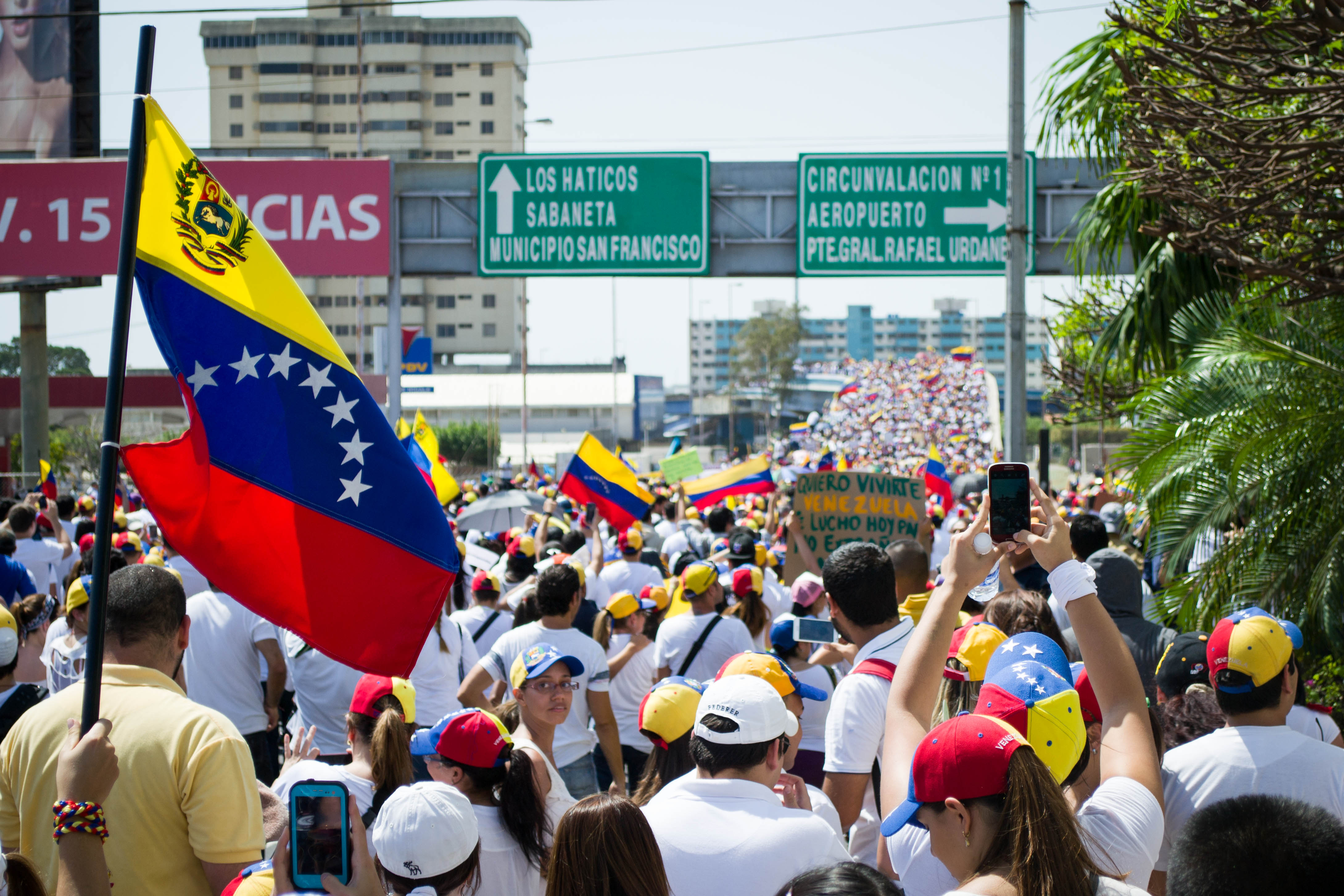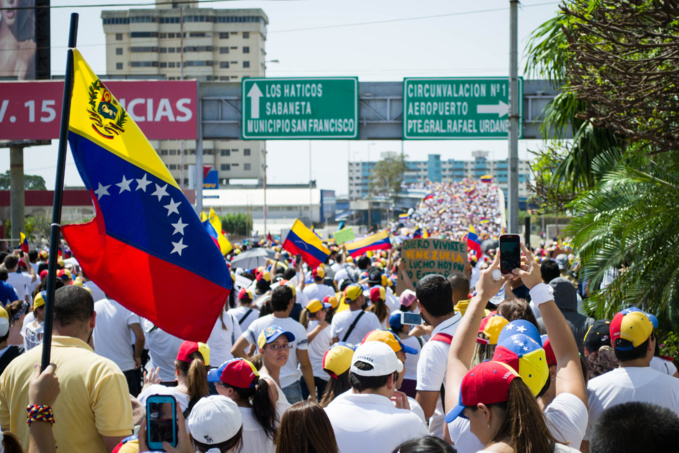According to American media, China is seriously concerned about prospects of the Venezuelan economy and viability of the country's present authorities. According to The Wall Street Journal, at least three Venezuelan opposition member of parliament and several economists have been invited to Beijing since this February.
According to the publication’s sources, they could have discussed options for a transitional government and recovery plans for the Venezuelan economy. WSJ also refers to concerns about security in the country and prospects for debt repayment, expressed by Chinese diplomats in Caracas. In this connection, there have already been held several meetings with representatives of Chinese companies operating in the country. Sources reported that "the parties reached a consensus on freezing of new investment." There is also information that some Chinese companies have already started to transfer their employees to Colombia and Panama because of concerns about safety and many projects discontinued in Venezuela. At the moment, amount of Venezuela’s debt to China is about $ 60 billion.
In mid-August, Miami Herald published a column by Margaret Myers, who heads the American Research Center of Inter-American Dialogue Program for study of China’s interaction with Latin America. Ms. Myers said that although the Chinese Foreign Ministry and state-owned companies are not showing any changes in their attitude toward Venezuela, their concerns about the Venezuelan economy and viability of the country’s current government are growing. A good example here is abolition of a Chinese project to build high-speed railway in Venezuela. In addition, Ms. Myers said that the Chinese media are paying special attention to problems in the Venezuelan economy and deteriorating situation of President Nicolas Maduro. The Chinese had already been in contact with representatives of the Venezuelan opposition - representatives of a Venezuelan party "Democratic Action" and opposition leader Henrique Capriles.
Prior to 2005, exports to Latin America did not exist as such. Now, however, China is a key supplier, and Venezuela is a major client. According to estimates of Stockholm International Peace Research Institute (SIPRI), Venezuela purchased Chinese weapons for $ 373 million in 2011 and 2015. In 2012, the countries concluded a long-term deal for supply of weapons, including armored vehicles and self-propelled artillery, worth $ 500 million. China has also made significant progress in many other countries in the region. The socialist-leaning group ALBA (Bolivarian Alliance for the Peoples of Our America: Bolivia, Venezuela, Cuba, Ecuador, Nicaragua, Dominica, Antigua and Barbuda, Saint Vincent and the Grenadines, St. Lucia, Grenada, and Saint Kitts and Nevis) was particularly interested in Chinese military equipment. Bolivia, for example, signed contracts worth $ 58 million in 2009, and $ 108-113 million in 2012, bought Karakorum trainer planes and Panther helicopters.
source: wsj.com, miamiherald.com
According to the publication’s sources, they could have discussed options for a transitional government and recovery plans for the Venezuelan economy. WSJ also refers to concerns about security in the country and prospects for debt repayment, expressed by Chinese diplomats in Caracas. In this connection, there have already been held several meetings with representatives of Chinese companies operating in the country. Sources reported that "the parties reached a consensus on freezing of new investment." There is also information that some Chinese companies have already started to transfer their employees to Colombia and Panama because of concerns about safety and many projects discontinued in Venezuela. At the moment, amount of Venezuela’s debt to China is about $ 60 billion.
In mid-August, Miami Herald published a column by Margaret Myers, who heads the American Research Center of Inter-American Dialogue Program for study of China’s interaction with Latin America. Ms. Myers said that although the Chinese Foreign Ministry and state-owned companies are not showing any changes in their attitude toward Venezuela, their concerns about the Venezuelan economy and viability of the country’s current government are growing. A good example here is abolition of a Chinese project to build high-speed railway in Venezuela. In addition, Ms. Myers said that the Chinese media are paying special attention to problems in the Venezuelan economy and deteriorating situation of President Nicolas Maduro. The Chinese had already been in contact with representatives of the Venezuelan opposition - representatives of a Venezuelan party "Democratic Action" and opposition leader Henrique Capriles.
Prior to 2005, exports to Latin America did not exist as such. Now, however, China is a key supplier, and Venezuela is a major client. According to estimates of Stockholm International Peace Research Institute (SIPRI), Venezuela purchased Chinese weapons for $ 373 million in 2011 and 2015. In 2012, the countries concluded a long-term deal for supply of weapons, including armored vehicles and self-propelled artillery, worth $ 500 million. China has also made significant progress in many other countries in the region. The socialist-leaning group ALBA (Bolivarian Alliance for the Peoples of Our America: Bolivia, Venezuela, Cuba, Ecuador, Nicaragua, Dominica, Antigua and Barbuda, Saint Vincent and the Grenadines, St. Lucia, Grenada, and Saint Kitts and Nevis) was particularly interested in Chinese military equipment. Bolivia, for example, signed contracts worth $ 58 million in 2009, and $ 108-113 million in 2012, bought Karakorum trainer planes and Panther helicopters.
source: wsj.com, miamiherald.com



















